Republic of the Congo
Voting in a presidential election in Congo Republic opened on Sunday under a government-imposed communications blackout as longtime leader Denis Sassou Nguesso sought to extend his rule over the Central African oil producer.
Sassou Nguesso is heavily favoured to win the polls. He faces eight opponents, including retired General Jean-Marie Mokoko who is seen as the strongest challenger.
The government also banned the use of motor vehicles nationwide during the vote, and police checkpoints were erected across the capital Brazzaville to verify that those circulating had obtained special permission.
Having ruled from 1979 to 1992, when he lost an election, Sassou Nguesso regained power in 1997 after a brief civil war and then went on to win disputed elections in 2002 and 2009.
He pushed through constitutional changes in October to remove term and age limits that would have prevented him from standing again.
His supporters credit him with restoring stability and developing the country’s infrastructure. Critics, however, say Congo’s oil wealth has enriched a small elite. Around half of the population of 4.5 million lives in poverty.
The polls will be watched closely by other leaders in Africa – notably in neighbouring Democratic Republic of Congo – where a number of long-serving presidents are seeking to stay on beyond constitutionally mandated term limits.
A government official said on Saturday that mobile phone companies MTN Congo and Airtel Congo had been ordered to interrupt service on March 20 and 21 “for reasons of security and public tranquillity”.
The opposition criticised the decision, which they said would hamper the work of elections monitors.
The opposition said on Friday it had documented preparations for widespread vote rigging, including voters registered at multiple polling sites, individuals with multiple voter cards and the distribution of voter cards to non-citizens.
The government rejected the accusations, claiming its opponents were preparing the ground for post-election chaos. The opposition in turn denied it was inciting violence but warned that people would not accept a tainted result.
Former colonial power France criticised the conditions of October’s constitutional referendum, saying they did not allow an accurate assessment of the result. And the European Union has decided not to send a mission to observe Sunday’s vote.



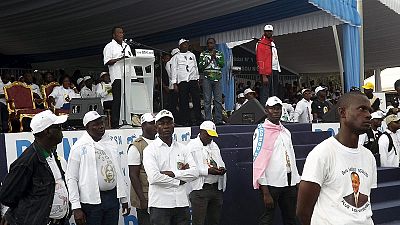

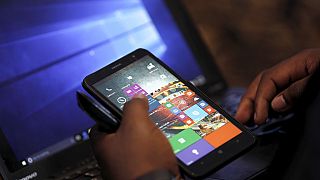
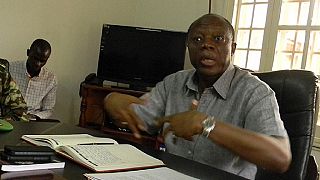
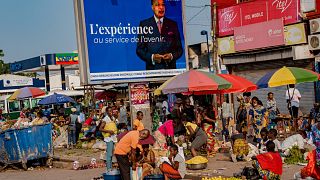
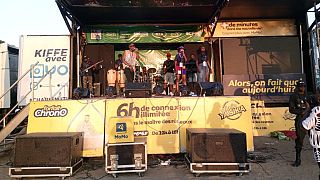
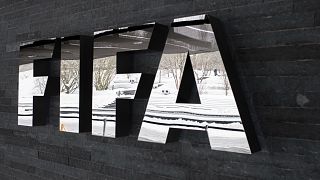



01:09
Cameroon’s civil society calls on voters to sanction Biya in upcoming elections
Go to video
Tidjane Thiam plans return as Ivory Coast's opposition PDCI party leader
Go to video
Somali president focuses on reforms, not re-election for now
01:30
Ineligible to stand, Gbagbo enters the Ivorian election by other means
01:15
Gabon’s constitutional court confirms Nguema’s landslide presidential victory
Go to video
Equatorial Guinea secures investment-grade rating — But for how long {Business Africa}